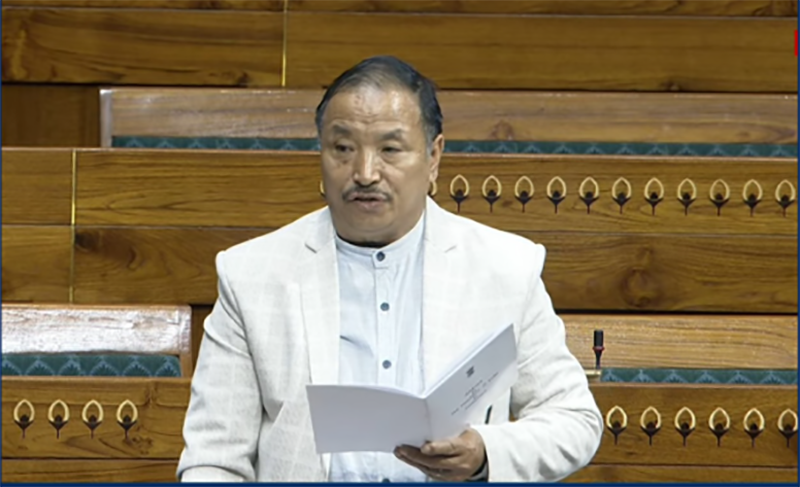Nagaland’s Lok Sabha MP, S Supongmeren Jamir, today raised serious concerns in the Lok Sabha under Rule 377, highlighting the chronic neglect of the Northeast region in infrastructural and policy development despite the Central Government’s proclaimed ‘Act East Policy’.
In a written submission, Jamir pointed out that although the Northeast shares extensive international borders with Bangladesh, Myanmar, and China, the region continues to lag behind the rest of the country in critical sectors such as road, rail, and air connectivity; electricity; health services; telecom and IT infrastructure; and access to quality education, particularly in medical, engineering, and higher education. He noted that the rural-urban gap is even more stark in these areas.
Underscoring his point, he observed that even defence and paramilitary forces are facing logistical and connectivity challenges in the region, hampering their ability to effectively secure the international borders.
Citing a specific example from Nagaland, the MP highlighted the condition at Longwa International Trade Center along the Indo-Myanmar border. While two-wheelers can easily access the centre from the Myanmarese side, access from the Indian side remains barely accessible due to poor road infrastructure, he pointed out.
He further lamented the Union Government’s contradictory approach, claiming a forward-looking “Act East Policy” on paper, while in practice exhibiting a defensive and dismissive attitude.
According to a press release issued by Communication Department, NPCC, Jamir questioned why the Government was quick to label the region as “disturbed” or insurgency-affected, yet has failed to implement the two hard-won peace accords signed with Naga National Groups, which have been pending for years.
Download Nagaland Tribune app on Google Play

He further questioned the Government of India about what solution was delivered to the people of Nagaland from the two Peace Accords, which were touted with much fanfare as the long cherished final political settlement for the people of Nagaland during the time it was signed, but which it has failed to implement despite the passage of so many years.
He also questioned the continued imposition of the draconian Armed Forces Special Powers Act (AFSPA) across large parts of the region, which belies the Government’s rhetoric of peace and progress.
Calling for context-sensitive policy making, Jamir stressed the urgent need to decentralize the planning process, asserting that only through inclusive and region-specific policy frameworks can the Government’s development vision for the North East succeed.
He further stated that it was high time for the Government of India to move beyond optics and adopt a solution-centric development approach that addresses the unique realities of the region, rather than indulging in mere posturing or headline-driven slogans.

